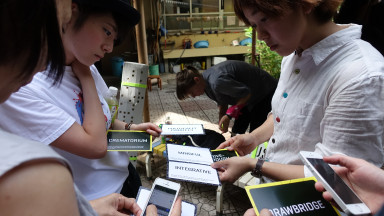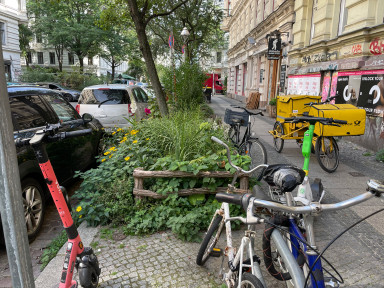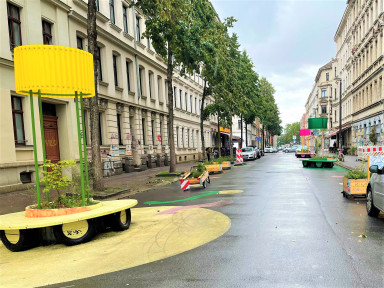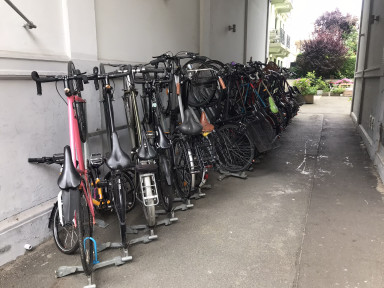Collaborative future-making through game design practices
The potentials of prototyping, testing, and jamming for participatory planning processes
‘Less top-down planning and more collaborative processes!’ Citizen participation has long been politically desired and has become an integral part of public planning. However, how capable are planning professionals of designing successful participation processes? How can we do justice to the heterogeneity of differently knowledged actors when it comes to collaborative design and decision-making? Theoretically underpinned by an analysis of urban planning theory and participatory design history, I investigate, from urban studies and game design perspectives, how we can empower co-creation and co-decision-making with playful methods.
- participatory planning
- games
- design
- co-design
- decision-making
Context
Because participation implies power structures, it requires sensitive means for collaborative decision-making.¹ As mediators, professionals often seek to present what is feasible instead of creating participatory inputs with new urban knowledge.2 What if participation meant co-creating future images together instead of legitimizing design decisions?
Participation is not a protected concept tied to a specific approach or a measurable outcome. Success criteria depend on the different interests that are tied to its implementation, and so far, these have mostly been formulated from planners’ perspectives. Participation is a political act; however, it is also an individual experience. My research analyses this as yet overlooked perspective and inquires: What does it take for participants to render participation meaningful? To approach this question, I examine planning processes from a game design perspective because games are user-centred systems that have perfected user engagement.
Aims
This project aims to investigate: To what extent do playful practices such as prototyping, testing, and jamming render participatory design meaningful for participants? I examine how playful practices can facilitate participation through shared imagination in ongoing public participatory design cases.
As existing method evaluations mostly lack an account of participant experience, this project seeks to produce a robust qualitative data set that fills that gap. It analyses methods by determining which qualities produce meaningful experiences, contributing to the debate on success criteria for participation. It also further examines knowledge transfers from citizens to planners, adding to the debate on urban knowledge.
Research design
The applied research combines theory and practice using methods from game user research and qualitative social sciences. My research context consists of two public participatory design cases which facilitate games for co-creation and co-decision-making, allowing me to collect data for my research. I compare a planning game, in which participants face a planning dilemma, take on roles, and act according to the goals of their characters in a quick collaborative problem-solving jam, and a building game, in which ideas are quickly prototyped and tested directly on-site with simple building material.
A web-based questionnaire captures participants’ pre-game expectations, knowledge, and motivation. The game is documented using a participant observer method, and design artifacts are documented. Post-game, on-site interviews and a web-based questionnaire based on the Player Experience Inventory (PXI)3 have captured participants’ experiences. Additional in-depth semi-structured interviews relate individual experiences to the specific game qualities of prototyping, testing, and jamming. The knowledge transfer of participants’ input has been captured at crucial planners meetings by a participant observer method. Once the final design decision was taken, a web-based group discussion gathered participants’ impressions of the relation between their own contribution and the outcome.
Supervisors:




